Paris Court Reverses French Police Ban On Iranian MEK Rally
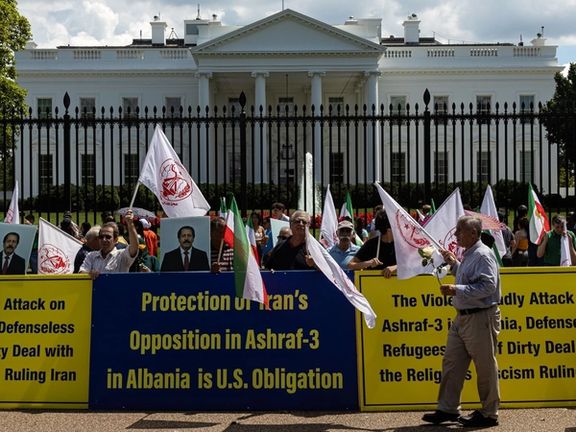
A Paris court on Friday reversed a decision by the French capital's police to ban an upcoming rally of an Iranian opposition group, the Mojahedin Khalq.

A Paris court on Friday reversed a decision by the French capital's police to ban an upcoming rally of an Iranian opposition group, the Mojahedin Khalq.
The court dismissed the police argument of the rally posing a risk of an attack, saying it interfered with the basic freedom to protest.
The ruling by the Paris administrative tribunal comes as police are fully stretched amid the worst riots seen across cities in France since 2005 sparked by the fatal police shooting of a teenager.
The Paris-based National Council of Resistance of Iran (NCRI), political arm of the People's Mujahideen Organization of Iran (PMOI), has held frequent rallies in the French capital over the years. They have attracted thousands of followers and are often attended by high profile former US, European and Arab officials critical of the Islamic Republic.
In a letter signed by Paris police chief on June 15 said it could not allow the protest because of security concerns.
That ban came just days after the release of an Iranian diplomat convicted of masterminding a plot to bomb the group in 2018 and as Western powers seek to defuse tensions with Iran.
The court said the ban "excessively violated the fundamental freedom to demonstrate". The rally will now take place near the French Foreign Ministry in central Paris on Saturday, for a limited period and be confined to one area. The protesters will also provide extra private security, the court said.
In a statement the NCRI welcomed the ruling, which it said denied Iran "the opportunity to exploit 'security concerns' under false pretenses in order to suppress democracy and freedom of expression."
Report by Reuters

Iran has rejected the voracity of a video released by Israel's spy agency Mossad of a captured IRGC agent caught before an attack on Jews and Israelis in Cyprus.
Nour News, affiliated to the Supreme National Security Council (SNSC), said in a tweet on Friday that the report was an effort to cover up Israel’s own domestic crisis, trying to cover up the shameful incident in which Mossad agents captured the assassin on Iranian soil.
The video of the captured agent was released on Thursday, in which the agent, identified as Yousef Shahabazi Abbasalilo, is filmed sharing details of his entry to Cyprus through the Turkish occupied north and how he had scoped out the location of the first target for assassination, prepared the weapon and concealed it on word that he must flee just days ago.
"The Zionist regime, which is (facing a) deterioration of its domestic situation, has narrated a failed operation from a year ago in Iran where all its agents were arrested in an upside-down manner," said Nour News.
Cypriot security forces dismantled the plot's infrastructure based on the information.
“We’ll get to every person that advances terrorism against Jews and Israelis all over the world, including on Iranian soil,” a senior Mossad official said.
Last year, Mossad captured a senior IRGC official on Iranian soil and interrogated him about weapons shipments to Iran's proxies.
This is the third time evidence emerges of Israeli agents detaining an IRGC operative inside Iran and taping confessions. A short audio recording was published by Israeli media in May last year with a photo of a man introduced as Iranian national Mansour Rasouli, 52.
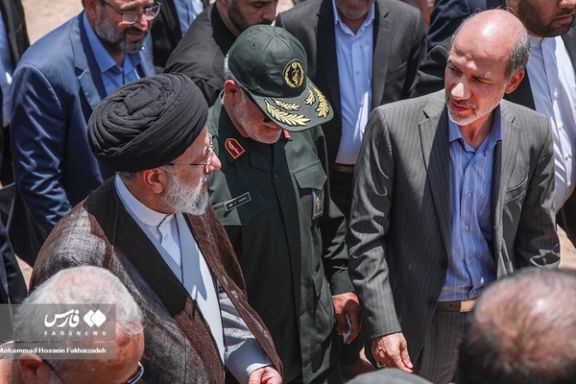
Ten thousand villages in Iran are without drinking water, with about 670 people in Kerman province facing “serious” water scarcity.
The Iranian energy minister Ali-Akbar Mehrabian, who is accompanying President Ebrahim Raisi in his trip to the central province of Kerman, made the remarks as residents of a large number of cities in the province are procuring water via water tankers stationed around the towns while the weather temperature is over 40 degrees Celsius (104 in Fahrenheit scale).
He claimed that the drinking water problem has been elevated in 3,000 villages and the issue will be resolved in the 10,000 remaining villages by the end of this Iranian year (March 19, 2024).
Iran has huge numbers of villages in remote rural areas who depend on support for survival. Although on decline, the rural population is roughly about 21 million people, a little less than a fourth of the country's population.
During his trip to the province, Raisi also inaugurated several water projects, which he promised would solve the problem in Kerman.
Water issues have been the main topic of Raisi’s visits to Iranian provinces in recent months, taking him to Sistan-Baluchestan and Khuzestan provinces that have very little clean water and temperature as high as 51 degrees (about 124 in Fahrenheit).
Earlier in June, the water was also out in the capital Tehran for several days with tankers distributing water to residents.
In January, CEO of Iran Water and Wastewater Company, Atabak Jafari, issued a warning saying that 270 cities and towns are suffering from acute water shortage as water levels at dams have dropped to critically low levels.
As drought persists across Iran, more underground water is exploited for irrigation, depleting natural reservoirs formed during thousands of years. Old and unregulated irrigation methods, as well as an aging urban water distribution infrastructure compound the shortage.
An inefficient agricultural sector, overgrazing of rangelands and forests, aggressive over-extraction of groundwater resources, and most importantly the regime’s mismanagement are among the main causes of water bankruptcy in Iran.
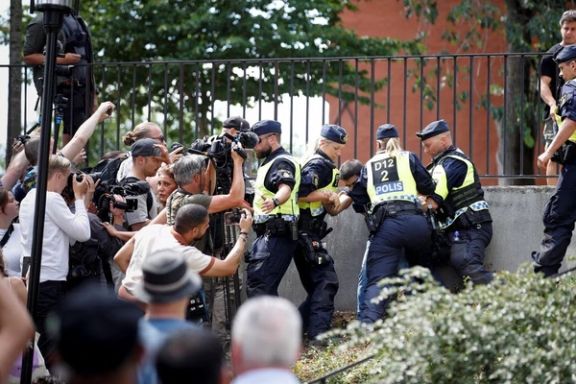
Iran’s foreign ministry has summoned Sweden’s charge d’affaires in Tehran over the burning of a copy of the Quran outside a mosque in Stockholm.
Condemning what Iran described as an insult to the most sacred Islamic sanctities, the ministry’s director-general for Western Europe summoned the diplomat on Thursday in the absence of Sweden's ambassador to Tehran.
“While Muslims are performing the Hajj, ... insulting their sanctities merely serves the path of spreading hatred and violence, exploiting the principle of freedom of expression,” read a statement by the ministry.
Two men publicly burned the Quran outside Stockholm's central mosque on Wednesday, an act approved by a Swedish court.
It was deliberately timed to coincide with the significant Muslim holiday, Eid al-Adha, further magnifying the incident's significance.
Some 200 onlookers witnessed one of the two protesters tearing up pages of a copy of the Quran and wiping his shoes with it before putting bacon in it and setting the book on fire, while the other spoke into a megaphone.
Several attendees shouted "God is Great" in Arabic to protest the burning, and one man was detained by police after he attempted to throw a rock.
Iran's Foreign Ministry Spokesperson Nasser Kanaani also condemned the Swedish government for permitting disrespect to the Muslim holy book on Thursday.
The act has led to protest rallies in several Muslim countries, with Iraqis holding a large demonstration outside the Swedish embassy in Baghdad.
Morocco also recalled its ambassador to Sweden late Wednesday to protest the desecration. Turkey’s foreign minister also criticized the move saying it is “unacceptable to allow anti-Islam protests in the name of freedom of expression”.
Burning religious texts is "disrespectful and hurtful", the deputy spokesperson for the US State Department told reporters in a daily briefing as well. "What might be legal is certainly not necessarily appropriate," Vedant Patel said.

Iran's foreign minister has reiterated Tehran’s willingness to restore diplomatic relations with Morocco as well as Egypt.
Hossein Amir-Abdollahian made the remarks during a ceremony with ambassadors, charges d'affaires, and heads of diplomatic missions from Muslim countries in Tehran on Thursday, on the occasion of Islamic holiday of Eid al-Adha (Feast of Sacrifice).
"We welcome expansion of relations and normalization of ties with other countries in the region and the Muslim world, including the Arab Republic of Egypt and the Muslim and brotherly country of Morocco," he said.
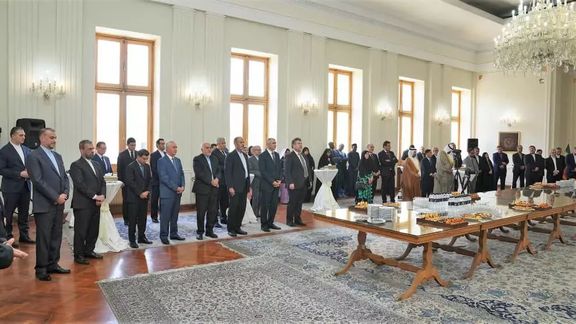
Tehran-Rabat relations are mostly non-existent, and diplomatic relations between the two nations have often been tarred by disputes.
Concerned of Iran’s attempts to spread its Shiite version of Islam in the country, which it deemed as a danger to its moderate Sunni religious identity, Morocco severed ties with Iran in 2009. They announced they were re-establishing relations in 2014. But in 2018, Morocco cut its diplomatic ties with Iran again, with the Moroccan Foreign Minister Nasser Bourita citing Iranian financial and logistical support to the secessionist Polisario Front through its Lebanese proxy Hezbollah and the Iranian embassy in Algeria.
Iran’s relations with Egypt, a close ally of Saudi Arabia and other Persian Gulf nations, have been fraught since the Shah fell in 1979. His subsequent refuge in Egypt, where he died and was buried in 1980, damaged relations.Qatar-affiliated media outlet Al-Arabi Al-Jadeed reported last June that Cairo and Tehran had agreed on “gradual expansion of Tehran-Cairo relations."
In May, Iranian lawmaker Fada-Hossein Maleki, a member of the parliament’s National Security and Foreign Policy committee, said that talks to bolster ties between Iran and Egypt are being held regularly in Iraq.
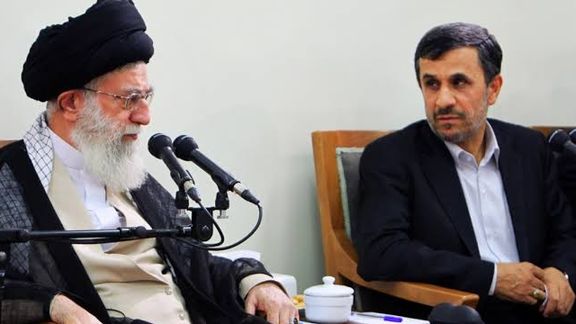
Hardliners dominating Iran’s ruling circles are eager to fend off suspicions that their own vigilantes were behind mass poisonings of schoolgirls in recent months.
A lawmaker claimed this week that “many of the hundreds” responsible for schoolgirl poisonings were affiliated with former President Mahmoud Ahmadinejad and were arrested on “direct orders” of Supreme Leader Ali Khamenei.
Using the term “Deviant Current” to describe the political affiliation of those responsible for the poisoning of thousands of schoolgirls across Iran, Morteza Mahmoudvand said hundreds have been arrested and being interrogated.
“We saw that the incidents of poisoning subsided after an order [by Khamenei] and parliament’s investigations,” Mahmoudvand told the Iranian Labour News Agency (ILNA).
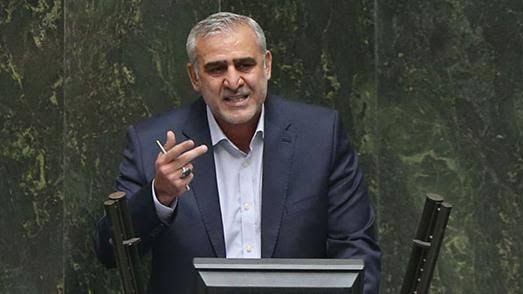
The poisonings started in the religious city of Qom in central Iran November 30, spread throughout the country, and continued until the end of April, sending hundreds of students to hospitals and at least one case of death was reported.
Many ordinary Iranians have been suspicious that hardliners, at the core of the regime, or religious extremists protected by the regime were behind the chemical attacks as a revenge against the active role of young girls in anti-regime protests. Many on social media called the attacks “state terrorism”.
In a statement on April 28, the intelligence ministry denied any indication that poisonous substances had caused the illness of students and said samples taken from the scene of the incidents examined by “the most reliable laboratories” in the country had not yielded any suspicious substances.
The ministry tried to minimize the serial attacks claiming students fell ill by stink bombs (stinkpots), pepper sprays and similar substances used by some students to disrupt classes.
“Officials have not confirmed Mahmoudvand’s allegations against the Ahmadinejad group yet, but it would be conceivable that the regime is aiming to kill two birds with one stone if they confirm these allegations,” a political analyst in Iran who requested anonymity told Iran International. “This will clear the regime itself of any responsibility and will also discredit the Ahmadinejad group in the eyes of some of its supporters.”
A dissident group of experts based overseas which has been investigating the poisonings has said that preliminary results of tests done on clothing of poisoned schoolgirls suggests the use of a nerve agent. Such agents, many say, could only be available to regime insiders.
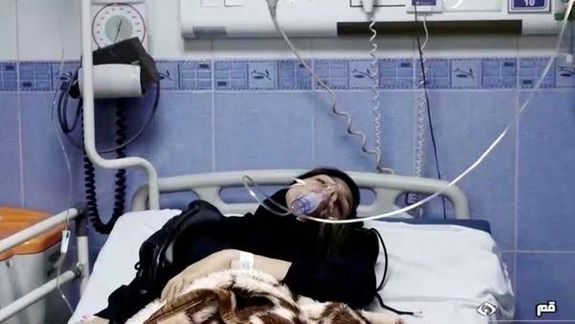
Some of the victims reported falling ill after an aroma, resembling tangerines, or a putrid stench filled the air in their classrooms. Hundreds had to be hospitalized with some staying in hospital for up to a week due to the severity of their symptoms including palpitation, headache, nausea, cough, sore throat, or temporary paralysis and weakness but most others were released within hours. In some cases, symptoms lasted for weeks.
Mahmoudvand also told ILNA that the “Deviant Current grouplet had infiltrated everywhere”, presumably meaning the government and intelligence organizations.
However, Ahmadinejad has maintained public silence for nearly a year and there has been no sign of any pro-Ahmadinejad group engaging in political activities.
Since a public standoff between Ahmadinejad, then president, and Supreme Leader Ali Khamenei in May 2011, officials of the Islamic Republic have used the term “Deviant Current” to describe Ahmadinejad and his inner circle including his vice president and confidante Esfandiar Rahim-Mashaei.
The conflict arose when Ahmadinejad fired Khamenei’s favored intelligence minister Heydar Moslehi who took his orders from the Leader.
Ahmadinejad even stayed home and refused to carry out his presidential duties for eleven days when Khamenei insisted that he reinstate Moslehi.
He eventually surrendered to Khamenei’s will, but the autocrat known for his vengefulness never forgave Ahmadinejad whose views he had said were the closest to his own, backing him before the 2009 presidential elections.
Khamenei’s devotees, accordingly, turned against Ahmadinejad who they had ardently supported throughout the years. Ahmadinejad was not allowed to run for presidency in 2017 and again in 2021, clearly on Khamenei’s orders.